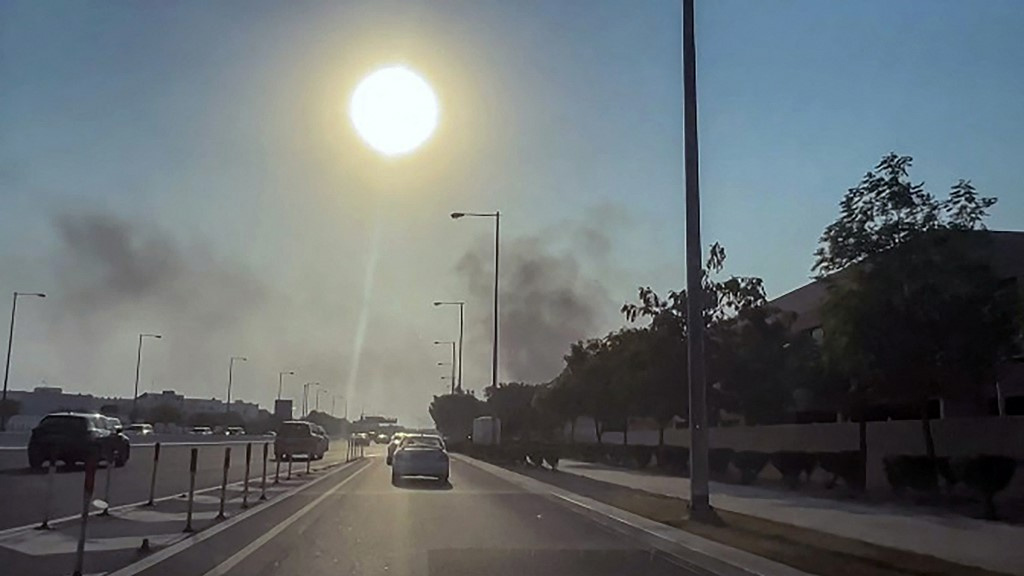Israel’s attack this month on the Hamas negotiating team in Doha, who were gathered to discuss the latest Gaza ceasefire proposal tabled by the Trump administration, failed in its objective to wipe out the group’s leadership.
But the attack killed six people, including a Qatari security officer, and irrevocably transformed the international mediation architecture on Gaza – and notably the role of Doha, amid reports that it could suspend its mediation efforts.
Any such move would be unsurprising and justified. Qatar previously threatened to withdraw from the multi-party mediation efforts amid a deadlock last year, but talks ultimately went on, even as Israel continued bombing Gaza on a daily basis.
After the Iranian strike on al-Udeid airbase this past June, which came in response to US attacks on nuclear sites in Iran, Qatar redoubled its commitment to diplomacy, mediating a deal between Iran and Israel that has held since.
The Israeli attack on Doha, however, is an entirely different situation.
New MEE newsletter: Jerusalem Dispatch
Sign up to get the latest insights and analysis on
Israel-Palestine, alongside Turkey Unpacked and other MEE newsletters
The highly choreographed Iranian attack in June was undertaken with Qatari foreknowledge. As analyst Kristian Coates Ulrichsen noted, Qatar “took one for the team” and helped to de-escalate the dramatic crisis.
Yet, despite claims that Qatar had advance knowledge of Israel’s 9 September attack, Qatari officials say they were notified only as Israeli fighter jets were dropping their bombs.
Diplomatic momentum
In recent years, Doha has refined its role as a regional diplomatic hub, agreeing to host both Hamas and Taliban offices in response to US requests. This makes it all the more troubling that the US did nothing to stop the Israeli attack.
What makes this incident so different is the undermining of trust within the multi-party mediation team for Gaza ceasefire talks. Qatar, Egypt and the US have for years constructively engaged in talks involving Israel, Hamas and the Palestinian Authority on issues related to conflict de-escalation and humanitarian access – despite their divergent geo-strategic interests.
Even tacit support for an attack on another member of the multi-party mediation team crosses a line, shattering the trust upon which this process depends.
Follow Middle East Eye’s live coverage of the Israel-Palestine war
In the short term, even if Qatar withdraws as a formal mediator, some level of Qatari facilitation will remain essential as long as the Hamas negotiating team is in Doha, and there is at least some semblance of diplomatic efforts towards reaching a ceasefire in Gaza.
In the longer term, Qatar will likely be called upon again to mediate after a cooling-off period – if the Hamas leadership does not relocate to Tehran or elsewhere, making it even more difficult for the rest of the world to communicate with them.
Meanwhile, three immediate priorities emerge from Israel’s attack on Doha.
Firstly, Israel’s intentions to derail ceasefire talks must not succeed. While current proposals are presumed dead in the water, diplomatic momentum towards renewed negotiations must be a priority.

Israel has declared war on the regional order: Gulf countries must respond
Read More »
The two-month ceasefire earlier this year brought some respite for the two million Palestinians trapped in a slow-motion genocide. That ceasefire was only possible due to the US using its strategic leverage on Israel to force a deal. With famine recently declared in Gaza and a relentless decimation campaign underway in Gaza City, the humanitarian stakes are higher than ever before.
Secondly, the attack raises fundamental questions about the future of regional diplomacy. If the Hamas delegation is not safe in Doha – by most measures among the safest places in the world – then where can the group find regional shelter? This attack did not occur in isolation; it was part of an escalating series of Israeli strikes across the region, from Palestine and Lebanon, to Syria and Yemen.
The attack also sets a dangerous precedent for international mediation more broadly: if neutral negotiating venues are now legitimate targets, this fundamentally alters the calculus for future conflict resolution.
Finally, the attack has shattered the long-held assumption that the presence of a US military base would render Qatar immune to attacks on its own soil. Gulf states must now rethink their dependence on US military power as a bulwark against any threat – be it Iran or Israel.
With its latest aggression, Israel has dramatically altered the rules of the game with the region’s most prominent US allies, while its media continues to incite against Turkey – another US ally that also happens to be a Nato member – and the speaker of the Knesset issues unhinged threats to the wider region.
The views expressed in this article belong to the author and do not necessarily reflect the editorial policy of Middle East Eye.

